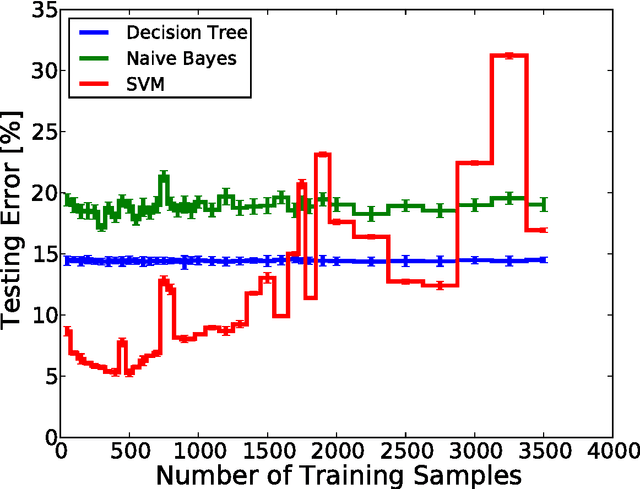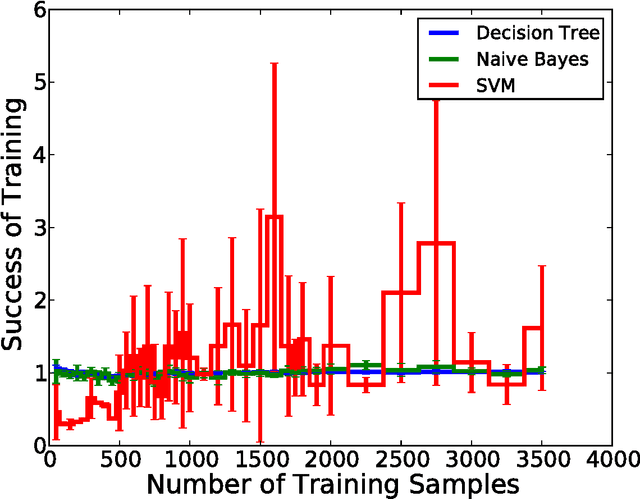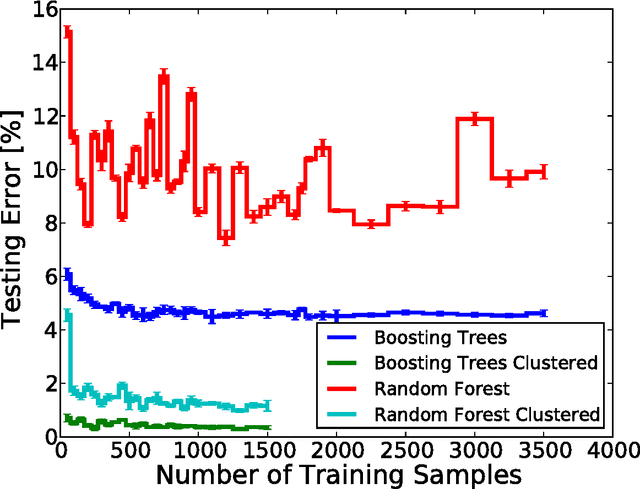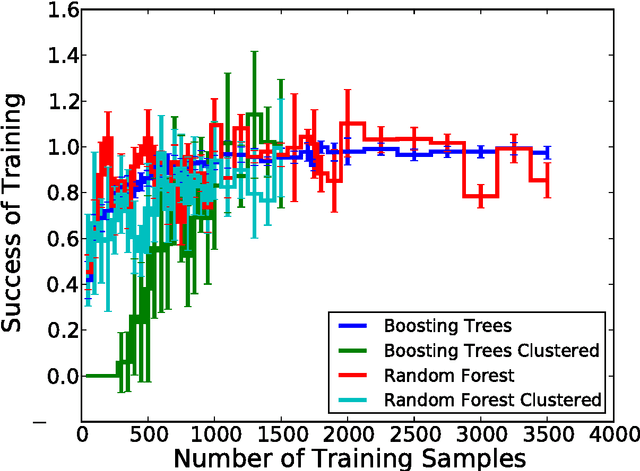Signal Classification for Acoustic Neutrino Detection
Paper and Code
Apr 16, 2011



This article focuses on signal classification for deep-sea acoustic neutrino detection. In the deep sea, the background of transient signals is very diverse. Approaches like matched filtering are not sufficient to distinguish between neutrino-like signals and other transient signals with similar signature, which are forming the acoustic background for neutrino detection in the deep-sea environment. A classification system based on machine learning algorithms is analysed with the goal to find a robust and effective way to perform this task. For a well-trained model, a testing error on the level of one percent is achieved for strong classifiers like Random Forest and Boosting Trees using the extracted features of the signal as input and utilising dense clusters of sensors instead of single sensors.
 Add to Chrome
Add to Chrome Add to Firefox
Add to Firefox Add to Edge
Add to Edge